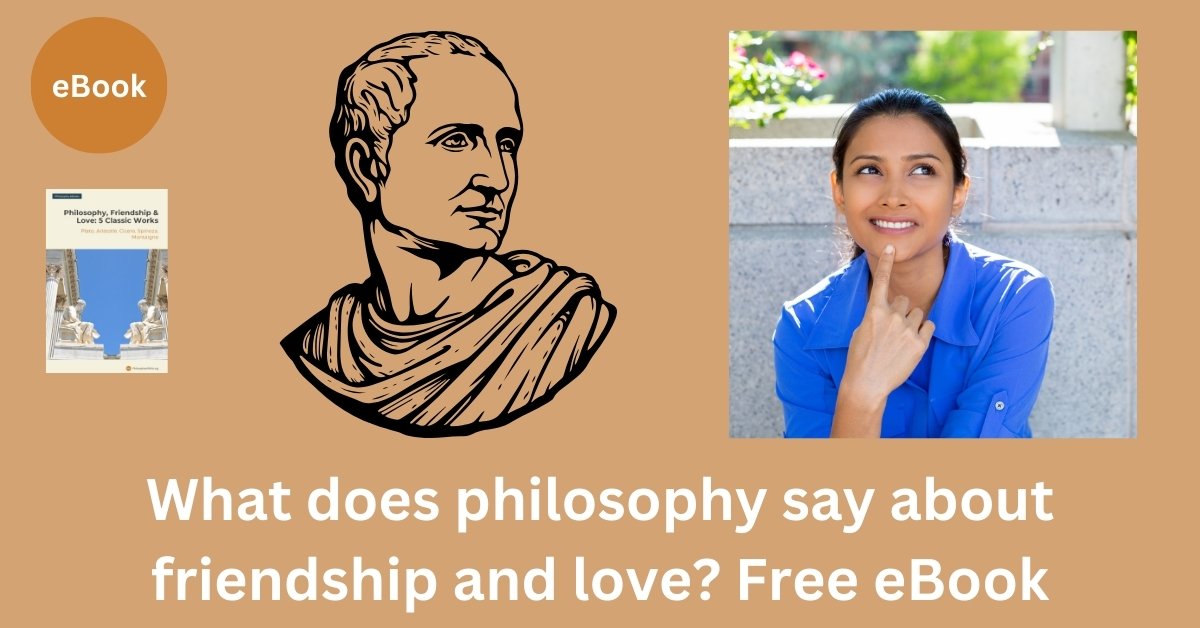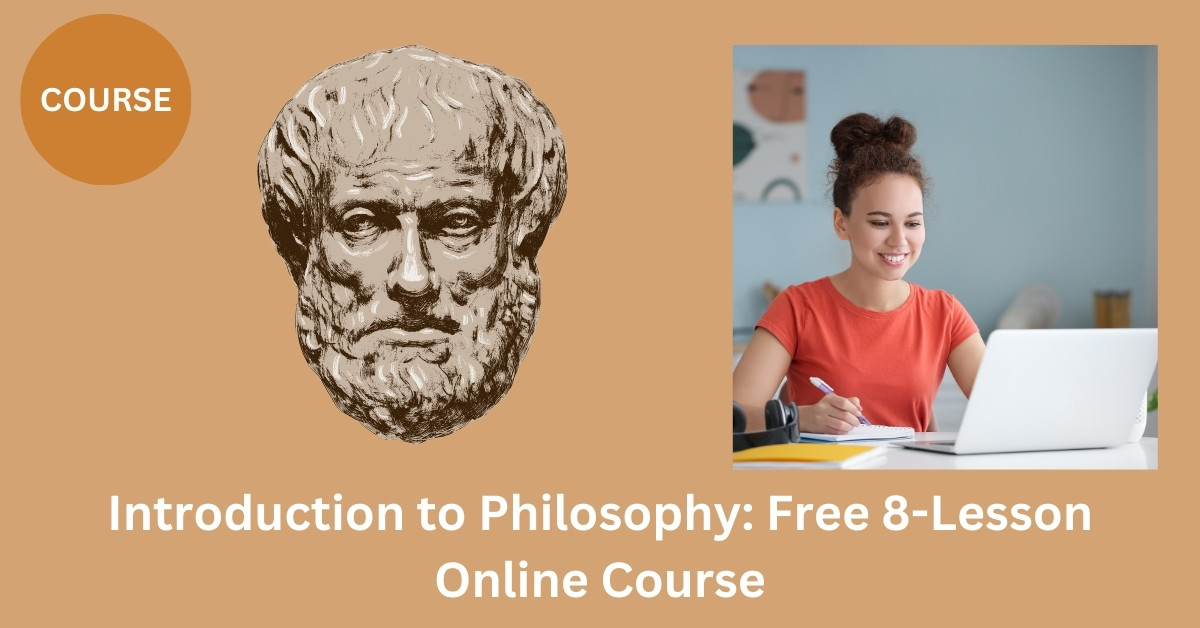Many people turn to philosophy to find more meaning in their lives, but they might not fully grasp how existentialism relates to emotions. There’s often a misunderstanding that existentialism outright denies God’s existence. However, understanding these concepts can greatly enhance our ability to use philosophy in seeking a more fulfilling life. In the sections that follow, we’ll dive into existentialism, explore the role of emotions, and see how they connect to living a more meaningful existence.
Philosophy and God’s existence

The philosophical idea of accepting the existence of God fundamentally revolves around the acknowledgment and belief that a supreme being or higher power is the ultimate cause and governor of the universe. This acceptance might stem from arguments rooted in metaphysical reasoning, experiences of the divine, or the testimony of historical religious teachings. Philosophers have explored this topic extensively, with some positing purely rational arguments, such as the ontological, cosmological, or teleological arguments, which seek to logically justify belief in God’s existence without relying on empirical evidence.
The ontological argument, for example, is highly abstract, rooted in the concept of God as a being than which none greater can be conceived, arguing that such a being must exist in reality rather than merely as an idea. The cosmological argument, on the other hand, considers the existence of the universe itself as a base for God’s existence, suggesting that because the universe exists, there must have been an uncaused cause that brought it into being. Meanwhile, the teleological argument focuses on the apparent design and order in the world, inferring the necessity of a designer.
This philosophical notion requires an openness to the metaphysical, transcending pure empirical evidence to embrace a dimension of understanding that connects with both reasoned deliberation and individual introspection. Ultimately, this acceptance represents a foundational element in many philosophical and theological discussions, posing profound questions about existence, purpose, and the nature of reality itself.
Philosophical debate
The philosophical concept of denying the existence of God is rooted in atheism, which can be characterized by a disbelief or lack of belief in a supreme being or divine entity. This concept often contrasts sharply with theism, which involves belief in at least one god. Atheistic perspectives are varied and can range from strong atheism, which actively asserts that gods do not exist, to more passive forms, which simply lack belief without making explicit assertions. Within atheism, there are also subcategories such as agnostic atheism, where individuals may question the existence of gods but maintain a lack of belief due to insufficient evidence or convincing arguments. Intellectual foundations for atheism often rely on philosophical arguments like the problem of evil, which challenges the coexistence of an all-powerful, all-knowing, and wholly good deity with the presence of suffering in the world. Additionally, atheists may critique religious texts or doctrines, perceived contradictions within belief systems, and the impact of cultural and historical factors on religious beliefs. While philosophers who deny the existence of God often emphasize empirical evidence and logical reasoning, their perspectives highlight a reliance on observable phenomena and scientific principles as opposed to spiritual or supernatural explanations. Atheism thus opens up discussions around ethics and morality, exploring how these concepts can be grounded in humanistic or secular values independent of religious frameworks.
What is existentialism?
Existentialism is a philosophical movement that explores individual freedom, choice, and the complexities of human existence. It emerged in the 20th century with the idea that life is inherently meaningless, yet humans have the capacity to create their own meaning and purpose. Central to existentialism is the concept of “existence precedes essence,” implying that individuals define themselves through their actions rather than being born with a predetermined nature or purpose. Prominent existentialist thinkers such as Jean-Paul Sartre, Simone de Beauvoir, and Albert Camus emphasize the importance of authenticity and personal responsibility in carving out one’s path in an indifferent universe.
The existentialist perspective often grapples with feelings of anxiety, despair, and absurdity, confronting the unsettling notion that life lacks inherent meaning or moral absolutes. However, this confrontation also fosters a sense of liberation, as individuals are free to make authentic choices and embrace their unique identity. Existentialism encourages people to engage in introspection, question societal norms, and pursue genuine self-discovery. By acknowledging the inherent uncertainty of life and embracing individual freedom, existentialism offers a framework for navigating the complexities of human experience, ultimately empowering individuals to live purposefully amidst absurdity. This philosophy challenges us to take ownership of our existence, directing us towards a life of intentionality and self-determined values.
Why it is not the case that existentialism necessarily denies the existence of God
When discussing existentialism, it is crucial to understand that not all existentialist philosophers deny the existence of God. While some prominent existentialists, such as Jean-Paul Sartre, embraced atheism, others like Søren Kierkegaard and Gabriel Marcel developed their existentialist philosophy within a theistic framework. This diversity of thought within existentialism shows that it is not inherently atheistic but rather a philosophical approach that can encompass both theistic and atheistic perspectives.
Kierkegaard, often considered the father of existentialism, was a devout Christian whose work focused on the individual’s subjective relationship with God. He emphasized personal faith and the “leap of faith” as central to a meaningful existence, illustrating how existentialism can coexist with religious belief. Similarly, Gabriel Marcel, a Catholic existentialist, explored the spiritual dimensions of human experience and the role of hope and faith. Marcel’s work suggests that existential questions about meaning, freedom, and human existence can lead one toward a deeper understanding of the divine.
Furthermore, existentialism’s central premise of individual freedom and responsibility does not inherently conflict with belief in God. Many theistic existentialists argue that acknowledging a higher power does not negate human freedom but rather places personal responsibility within a broader divine context. This perspective can lead to a rich exploration of how faith informs and coexists with individual freedom.
Ultimately, existentialism’s focus on personal experience and authenticity allows for diverse interpretations, meaning it neither requires nor excludes belief in God. Through existential inquiry, individuals are free to explore their own relationship with the concept of divinity, making existentialism a flexible framework that can accommodate various religious and non-religious worldviews. Hence, the assertion that existentialism necessarily denies the existence of God overlooks the complexity and variety of existential thought.
Why people may believe existentialism denies the existence of God
Existentialism, as a philosophical movement, centers around the exploration of individual freedom, personal responsibility, and the meaning of existence. This focus on personal agency can sometimes be misconstrued as inherently atheistic, leading to the false belief that existentialism necessarily denies the existence of God. One reason for this misconception is existentialism’s emphasis on subjective experience over objective truths. Existentialists argue that meaning is not given by the external world or divine beings, but rather created through an individual’s actions and choices. This focus on human-centered meaning-making can be mistakenly viewed as contradictory to religious doctrines that attribute meaning to a divine source. Consequently, existentialism is often misunderstood to imply that God does not exist, when in fact, existentialists are primarily concerned with how individuals confront and create meaning in their lives, regardless of the presence or absence of a deity.
Additionally, the association of existentialism with prominent atheistic philosophers further contributes to the misunderstanding of the philosophy’s stance on the existence of God. Influential figures such as Jean-Paul Sartre and Friedrich Nietzsche are widely known for their explicit rejection of traditional religious beliefs, and because their existential ideas often feature prominently in existential discourse, existentialism is erroneously equated with atheism. This narrow interpretation ignores the contributions of theistic existentialists like Søren Kierkegaard, who engaged deeply with Christian themes and saw existentialist inquiry as compatible with spiritual belief. Hence, the philosophical diversity within existentialism is frequently overlooked, resulting in a skewed perception that it is synonymous with God-denial. This conflation stems from an oversimplification of existential thought and a failure to recognize its broader spectrum, which accommodates both theistic and atheistic interpretations.
Living meaningful lives
Reflecting on existentialism and the existence of God holds profound practical importance for those seeking to cultivate a more meaningful life. Such contemplation encourages individuals to explore the fundamental questions about purpose, existence, and the ultimate meaning of life, which are central to personal development and fulfillment. By engaging with these philosophical themes, one gains insights into the values and beliefs that drive decisions and shape personal identity. This process of reflection can lead to a deeper understanding of oneself and one’s place in the world, fostering a sense of purpose that guides actions and choices.
The contemplation of the existence of God often compels individuals to grapple with the notion of a greater purpose and order. For some, belief in a divine presence provides a framework of moral and ethical values that offer guidance and stability in navigating life’s challenges. It may impart a sense of belonging to a larger whole, instilling hope and resilience in the face of adversity. Conversely, the search for meaning in a seemingly indifferent universe can motivate individuals to forge personal significance through relationships, creativity, or the pursuit of knowledge. In both scenarios, individuals are driven to define what life means to them, which can be a source of comfort and direction.
Moreover, reflecting on existential concerns prompts individuals to confront the certainty of mortality, inspiring them to live more fully and authentically. The awareness of life’s finitude can serve as a catalyst for appreciating present experiences and nurturing relationships. This perspective encourages living with intentionality rather than passivity, prompting a shift from focusing solely on external achievements to cherishing the process of living itself. Life’s inherent uncertainties become an opportunity to embrace change and growth, leading to a resilient and adaptive approach to life’s inevitable transitions.
Engaging with these existential themes can also foster empathy and understanding, as individuals recognize the common human struggle with questions of existence and purpose. This awareness of shared existential concerns can lead to greater compassion and support for others, enhancing social connections and fostering a sense of community. It cultivates an appreciation for diverse perspectives and experiences, promoting inclusivity and openness in personal and communal interactions.
In addition, the reflection on existentialism and the divine may inspire a commitment to leave a lasting impact. It can drive individuals to align their actions with a sense of legacy, whether through meaningful work, acts of kindness, or contributions to societal well-being. This desire to contribute to something greater than oneself can imbue life with a sense of enduring worth and achievement, transcending the immediate and tangible.
By grappling with existential questions, individuals are encouraged to live with greater self-awareness and purpose. This journey of self-exploration and inquiry fosters a sense of agency and responsibility for one’s life path, empowering individuals to navigate complex moral landscapes with clarity and conviction. In embracing the rich tapestry of life’s uncertainties and mysteries, individuals can construct lives that are not only meaningful to themselves but also resonate with the broader human experience, making their impact both personal and profound. Through this reflective practice, the pursuit of a meaningful life becomes an ongoing, dynamic process, rather than a static destination, contributing to a richer, deeper human existence.


